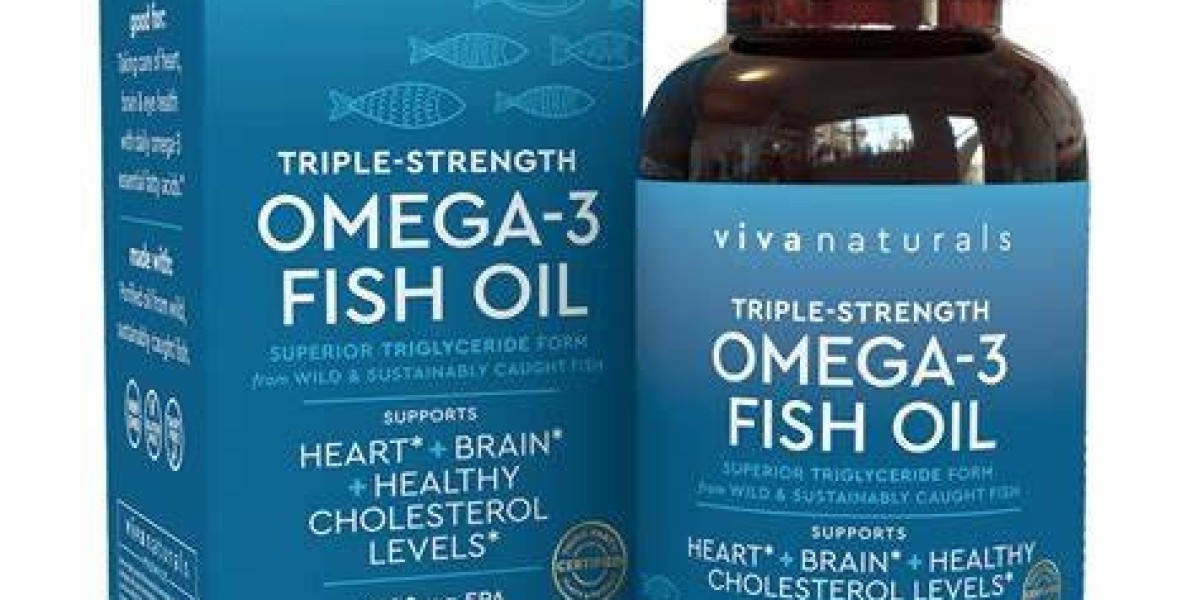In the vast world of dietary supplements, fish oil has secured a prominent place, recognized for its heart-healthy omega-3 fatty acids. But with an overwhelming number of brands and products on the market, how does one discern the best from the rest? Here's a guide to help you chart a course through the waves of options and land on the best fish oil supplement.
The Allure of Fish Oil: Fish oil, primarily sourced from fatty fish like salmon, mackerel, and sardines, is rich in two types of omega-3 fatty acids: eicosapentaenoic acid (EPA) and docosahexaenoic acid (DHA). These compounds have been linked to a range of health benefits, from supporting cardiovascular health to aiding brain function and reducing inflammation.
Setting the Standard: What Makes Quality Fish Oil:
Purity: A quality fish oil should be free from contaminants like heavy metals, PCBs, and dioxins. Reputable brands often undergo third-party testing to ensure their products meet safety standards.
Concentration: The potency of fish oil is determined by its EPA and DHA content. A high concentration means you can achieve the desired intake with fewer capsules.
Freshness: Omega-3s can oxidize over time, leading to reduced efficacy and a rancid taste. Check for an expiration date and select a product packaged with antioxidants like vitamin E.
Sustainability: In today's environmentally conscious era, sourcing fish oil from sustainable fisheries is a mark of quality. Brands aligned with eco-friendly practices often have certifications to verify their commitment.
The Voyage to Finding the Best Fish Oil:
Start with Recommendations: Consult with healthcare professionals. They often have insights into which brands are backed by research and have shown efficacy.
Read Labels Diligently: Look for the total amount of EPA and DHA per serving. Additionally, check for any added ingredients or fillers.
Transparency is Key: Brands confident in their product quality will usually provide information about their sourcing practices, purification methods, and third-party testing results.
Reviews and Feedback: While individual experiences vary, product reviews can offer insights into the efficacy and any potential side effects of a fish oil brand.
Form Matters: Fish oil is available in various forms - from triglycerides to ethyl esters and phospholipids. While debates about superiority continue, some suggest that the triglyceride form is more naturally absorbed by the body.
Consider Specialized Formulations: Some brands offer products tailored to specific needs, such as prenatal health or joint support. If you have a particular health focus, these specialized formulations can be beneficial.
Mistakes to Sidestep:
Avoiding the Price Tag: While affordability is a valid concern, the cheapest option might not offer the best quality. Investing in a reputable brand can yield better health outcomes.
Ignoring the Origin: Understanding where the fish oil is sourced can offer insights into its quality, especially concerning pollution and sustainability.
Overlooking Additives: Some fish oils contain added flavors or ingredients to mask the fishy taste. While they can make consumption more pleasant, it's essential to ensure they don't introduce unwanted chemicals or allergens.
Conclusion:
Finding the best fish oil is akin to embarking on a marine expedition. It requires patience, diligent research, and an understanding of the nuances that differentiate one product from another. But by navigating with knowledge and intention, you can discover a fish oil supplement that aligns with your health goals and offers the benefits of omega-3s in its purest form. Embrace the journey, and let the quest for quality guide you to the best shores of health and well-being.








